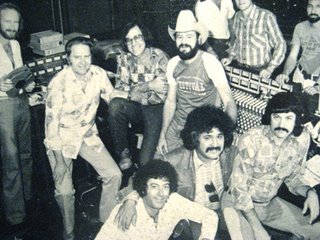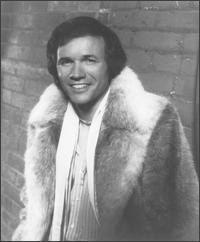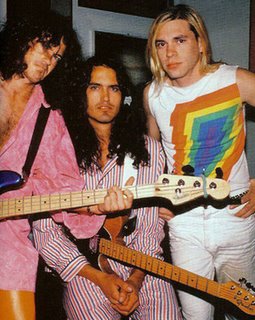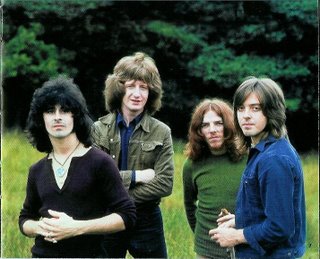 In an age of global madness, it's increasingly difficult to distinguish truth from fiction, right from wrong, good music from bad. In a world where Matt Lauer must define for a nation when Iraq has turned into a "civil war," figuring out whether Grace Slick's solo material is "good" listening is pretty much anybody's guess.
In an age of global madness, it's increasingly difficult to distinguish truth from fiction, right from wrong, good music from bad. In a world where Matt Lauer must define for a nation when Iraq has turned into a "civil war," figuring out whether Grace Slick's solo material is "good" listening is pretty much anybody's guess. Which means I could just as well call "¿Come Again? Toucan" a marvelous gem of a tune or its opposite. As Grace tells it, the issue is translation: Mistakes are made because words are misunderstood. It's all in how you talk. The song is from her first solo outing, 1974's Manhole, an album title that in itself deserves a special prize. It has a deceptive '70s jazzmatazz slinkiness to it, a la J-Mit (that's Joni Mitchell to you), but builds into something unexpected, a true blue cry for help in a world gone haywire. You can feel it: The cool, detached session-player grooviness barely constraining Grace Slick's rising impatience with the glass house she's in. I'm adding this to my proposed Cormac McCarthy movie soundtrack, too, if only for the declarative bandito cry at the start and later Slick's goofy-gal Lily Tomlin moment: "Geez, I wish I knew Spanish..." Listen close.
"¿Come Again? Toucan" - Grace Slick
 Okay, not a bad number. But that's kid play compared to this Gilbert O'Sullivan stuff, which even ardent taste contortionists are challenged to classify as "good." On the one hand, there's the Paul McCartney-gone-wild esprit de ham element, piano frivolity borne of the love of Tin Pan Alley; on the other there's the inbred Irish sad-sackism curdled into a pop porridge that a lot of right-thinking people just have to shove to the middle of the table when Grandma Gilbert serves it up. I don't blame them. But, alas, I love these songs and find myself listening to them over and over and over and over again. It's my own pop jingoism, I guess: my music right or wrong. It started with loving "Alone Again (Naturally)," which Mr. Poncho covered here previously, and led to these cuts from his 1972 American debut, Gilbert O'Sullivan: Himself. I've included O'Sullivan's winsome LP opener in the first tune.
Okay, not a bad number. But that's kid play compared to this Gilbert O'Sullivan stuff, which even ardent taste contortionists are challenged to classify as "good." On the one hand, there's the Paul McCartney-gone-wild esprit de ham element, piano frivolity borne of the love of Tin Pan Alley; on the other there's the inbred Irish sad-sackism curdled into a pop porridge that a lot of right-thinking people just have to shove to the middle of the table when Grandma Gilbert serves it up. I don't blame them. But, alas, I love these songs and find myself listening to them over and over and over and over again. It's my own pop jingoism, I guess: my music right or wrong. It started with loving "Alone Again (Naturally)," which Mr. Poncho covered here previously, and led to these cuts from his 1972 American debut, Gilbert O'Sullivan: Himself. I've included O'Sullivan's winsome LP opener in the first tune."January Git" - Gilbert O'Sullivan
"Bye Bye" - Gilbert O'Sullivan

After all that, Freddy Fender will resolve our quandries, make sure the center holds. Freddy Fender is the solution to immigration, foreign policy, domestic spending, nuclear disarmament and the estate tax. He eliminates borders and eminates good will. He offers Gilbert some sunscreen. He teaches Grace some Spanish. Fender's best album is his least appreciated, I think, "Swamp Gold" from 1978. After his Tex-Mex and country hits, he finally had the Billboard credibility to make the album he always wanted to make, hiring a crack R&B band to help cook up the soul album of his dreams. He still threw in the Spanish-language sections to keep his audience on board, but the style and spirit were a detour and a revelation. There's something sweet and vulnerable about his subtle sufferin' succotash lisp when he sings the great Donny & Marie number, "I'm Leaving It All Up to You." And yet he's not afraid to funk up the white-bred Morman pop with a hazardous fuzz-rock solo if that's what it takes to get over. But what really grabbed me was "When It Rains It Really Pours," with its cosmic synth opener, the conga-driven blast-off and the unique borderland soul styling that made Freddy a genuine melting pot singer. It's not really Mexican or Texan or even New Orleans style (or Utah, for that matter), it's just soul. What Grace was getting at. Borderless and beautiful.
"When It Rains It Really Pours" - Freddy Fender
"I'm Leaving It All Up To You" - Freddy Fender






